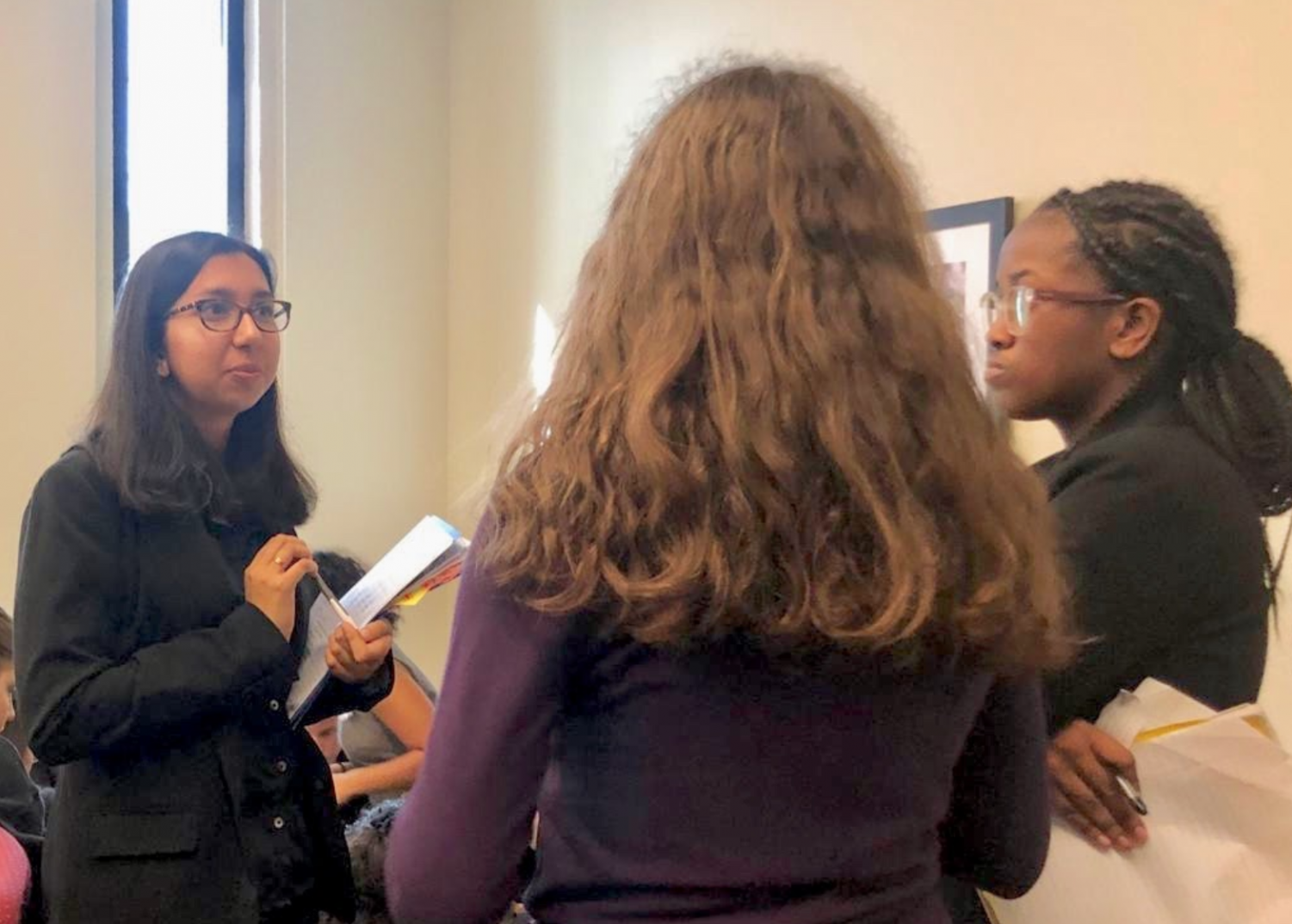The Benefits of Extracurricular Activities in High School
February 21, 2020
Mahi Tomar (11) developing her leadership and communication skills with other delegates at a Model UN conference.
Throughout their high school careers, students are often told that, alongside their academics, participating in other activities will not only better their university applications, but improve their character, leadership, and other soft skills. However, what are the specific positive aspects of participating in extracurricular activities, and do they outweigh the consequences?
“There are countless benefits to sports and activities,” said Doug Brotherton, coach of the Varsity Girls’ Basketball team. “[They] are tools to teach life lessons that you can’t get by sitting in a classroom or looking in a book.”
Many students at The Village School participate in a sports team or indulge in activities outside of the classroom and agree that they have seen the benefits of these activities.
“By being involved in many activities, it really opens yourself up to many different opportunities within the school,” said freshman Alex Ilacqua. “[They] also allow you to have a greater grasp of the world.”
Extracurricular activities have been scientifically proven to aid students throughout their lives. When focusing specifically on sports, as explained by professor Brendon Hyndman, a Senior Lecturer and Course Director with expertise in Health and Physical Education, on July 2018, the physical benefits of getting kids to move prevents chances of chronic disease and encourages them to develop regular movement habits, while also greatly increasing academic performance. A study conducted in Australia found that, out of 757 elementary school students, those who were fitter or had specialized physical education coaches attained higher test scores.
“You learn a great leadership component, you learn how to work with people, you learn how to manage your time,” said Brotherton. “The takeaway from athletics is that [they] will not only help you get in[to college] but also when you get there.”
Extracurricular activities can also aid students in the college application process. As explained by Ilana Kowarski, a reporter for U.S. News where she covers graduate school admissions, many experts suggest that winning awards in competitions, getting elected to leadership positions, conducting compelling research, engaging in an artistic activity, and doing community service are all great methods to distinguish yourself in the college applications process. In addition, these extracurriculars can also lead to scholarships, providing opportunities to aid families open doors to college.
However, many students become wary of participating in too many activities or sports, as they are afraid that the time they spend perfecting their craft is time wasted for academic work.
“Now there are some drawbacks of juggling multiple activities – you have to balance your time and face challenges,” said Brotherton. “But you will go into this going into the real world. [People] may say at times that athletics will take away from your studies, but if you have a family and a job, you will need to handle these things, and getting the opportunity to do so in High School is great.”
Although many benefits do come about from engaging in extracurriculars, it is important that student-athletes and those who participate in other activities are supported and taught methods to stay on top of their academic work.
“With school, there isn’t a lot of time, because of a substantial amount of homework and studying to do,” said sophomore Tommy Wan when asked about managing his time between many activities. “I think doing sports is a great thing. It helps you with your physical education, [and] it helps with being a well-rounded person. But, then again, it conflicts with the time management thing.”
Due to this time management issue, at The Village School, most teachers provide opportunities either before or after school for students to get the academic help they need so they can continue participating in the activities they enjoy.
Participating in extracurriculars and sports aids students when applying to colleges, and with support from their teachers, coaches, and the school itself, can provide them with important lessons to last a lifetime.
“All [the students] will see is support,” said Brotherton. “Ask for help so you can get the support that the school wants to offer. The big thing is that the student should be involved in something meaningful.”
